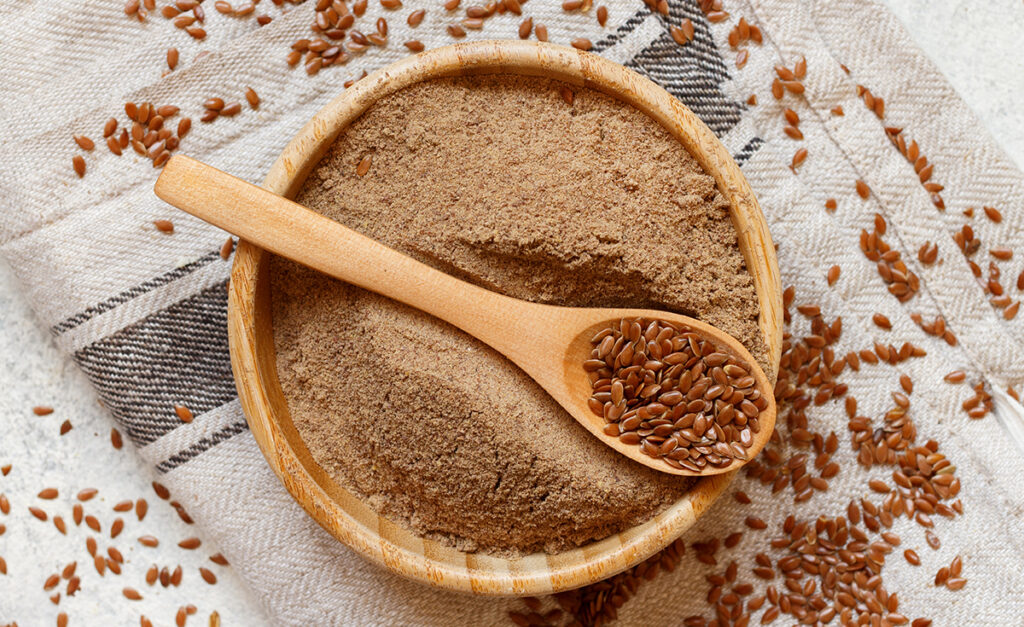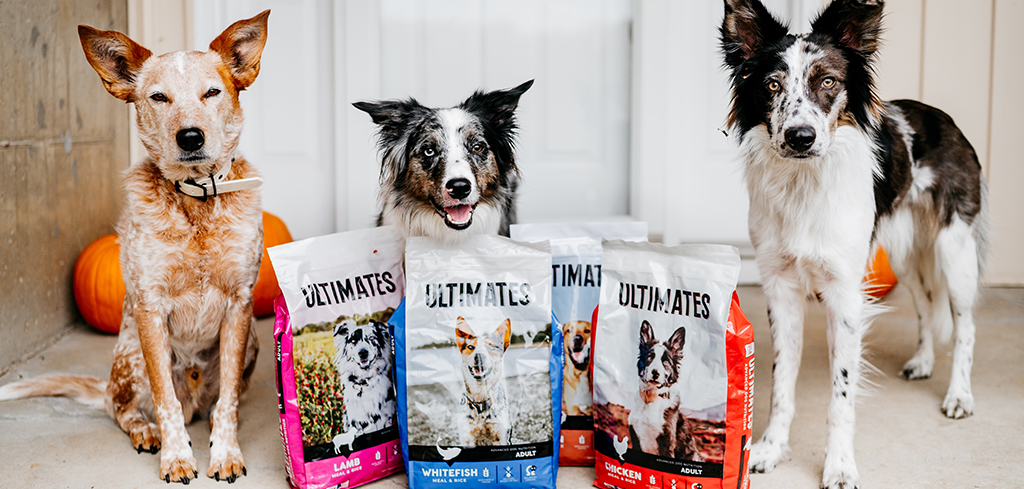Is Flaxseed Good for Dogs?
Flaxseed has gained popularity as a beneficial addition to many people’s diets, but is it good for dogs? In this article, we’ll explore the benefits of flaxseed for dogs, potential side effects to watch out for, and how to safely introduce it into your pup’s diet. By the end, you’ll have a better idea of how this tiny seed can impact your furry friend’s health.

Benefits of Flaxseed for Dogs
Flaxseed is packed with nutrients that can provide various health benefits for your dog. From supporting skin health to boosting the immune system, these nutty flavored seeds are a versatile addition to a balanced diet. Let’s take a closer look at some of the key benefits of flaxseed for dogs.
Supports Skin and Coat Health
Flaxseed is rich in omega-3 fatty acids, which are essential for maintaining a healthy skin and coat. The natural oils in flaxseed can help reduce dryness and flakiness, giving your dog a shiny, healthy coat. If your furry friend is looking a bit dull, flaxseed might just be the trick to bring back that glossy shine.
Additionally, the anti-inflammatory properties of these fatty acids can help alleviate skin conditions such as allergies and dermatitis. So, if your dog is scratching more than usual, it might be time to consider adding some flaxseed to their diet. These essential fatty acids also help maintain the integrity of cell membranes, which can further enhance skin and coat health.
Aids Digestive Health
The high dietary fiber content in flaxseed aids your dog’s digestive health by promoting regular bowel movements and preventing constipation. It supports your dog’s digestive system by providing soluble fiber, which is essential for maintaining a healthy gut microbiome. This can be especially beneficial for dogs with sensitive stomachs or digestive issues.
Imagine your dog having a smoother, more regular digestion process – that’s the magic of flaxseed at work. Ground flaxseed is particularly effective in this regard as it is easier for dogs to digest and absorb the nutrients compared to whole seeds. Including flaxseed in your dog’s diet can help maintain a healthy digestive system and prevent issues such as bloating and discomfort.
Boosts Immune Function
Flaxseed contains alpha-linolenic acid (ALA), an omega-3 fatty acid that supports the immune system. ALA can help enhance your dog’s immune response, making them less susceptible to infections and illnesses. This boost in immune function can contribute to overall better health and vitality. Think of flaxseed as a little shield, boosting your dog’s defenses against those pesky germs.
The presence of antioxidants in flaxseed also helps neutralize free radicals, which can damage cells and compromise the immune system. Regularly including flaxseed in your dog’s diet can help keep their immune system strong and resilient.
Anti-inflammatory Properties
Flaxseed’s anti-inflammatory effects are beneficial for dogs suffering from arthritis or other inflammatory conditions. The omega-3 fatty acids in flaxseed help reduce inflammation in joints and muscles, improving mobility and reducing pain. This makes flaxseed an excellent dietary supplement for older dogs or those with joint health issues.
By reducing inflammation, flaxseed can help your dog move more comfortably and maintain an active lifestyle. Additionally, the anti-inflammatory properties can benefit dogs with chronic conditions such as inflammatory bowel disease.
Considerations and Potential Side Effects
While flaxseed offers many benefits, it’s important to consider some potential side effects and how to address them. Being aware of these considerations can help ensure that your dog reaps the benefits of flaxseed without any adverse effects.
Allergic Reactions
While flaxseed offers many health benefits, some dogs may be allergic to it. Common signs of an allergic reaction include itching, swelling, and gastrointestinal issues. If you notice any adverse reactions after introducing flaxseed, discontinue use and consult your veterinarian.
In rare cases, dogs may experience more severe allergic reactions, such as difficulty breathing or anaphylaxis. Always introduce new foods gradually and monitor your dog closely to catch any signs of an allergic reaction early. If your dog has a history of food allergies, consult your vet before introducing flaxseed.
Balance of Nutrients
It’s important to balance the nutrients in your dog’s diet. Too much flaxseed can lead to an imbalance of omega-3 and omega-6 fatty acids, potentially causing health issues. Ensure that flaxseed is given in moderation and as part of a well-rounded diet. Overloading on any one nutrient isn’t beneficial – it’s all about balance.
Including a variety of nutrient sources in your dog’s diet can help prevent imbalances. For example, combining flaxseed with fish oil can provide a broader range of omega fatty acids. Always aim for a balanced diet to support your dog’s overall health.
Interactions with Medications
Flaxseed may interact with certain medications, such as blood thinners. If your dog is on medication, consult your veterinarian before adding flaxseed to their diet to avoid any potential interactions. Monitoring your dog’s health and adjusting their diet as needed is crucial for their wellbeing. It’s always good to double-check to avoid any unexpected complications.
In addition to blood thinners, flaxseed may also affect the absorption of some medications. Make sure to discuss any potential interactions with your vet to ensure that your dog’s treatment plan remains effective.
How to Safely Introduce Flaxseed
Introducing flaxseed into your dog’s diet should be done gradually and with care. Here are some steps to follow to ensure a smooth transition and maximize the benefits of this nutritious seed.
Talk to Your Vet About How Much to Give
Before adding flaxseed to your dog’s diet, it’s essential to consult with your vet. They can provide guidance on the proper amounts to give based on your dog’s size, age, and health status. This ensures that your dog gets the right dosage without any adverse effects. Your vet knows your dog’s health needs best, so it’s wise to get their advice first.
Your veterinarian can also provide insights into the best form of flaxseed for your dog, whether it’s ground flaxseed, flaxseed oil, or whole seeds. This helps ensure your pup gets the most out of their flaxseed intake.
Mixing with Food
Flaxseed can be easily mixed into your dog’s food. Ground flaxseed is usually preferred over whole seeds as it is easier to digest and absorb. Start with small amounts and gradually increase the dosage as your dog gets accustomed to it. Flaxseed oil (sometimes called flax oil) is another option, offering a concentrated source of omega-3 fatty acids. Just drizzle a little on their food and watch them enjoy the added flavor.
You can also incorporate flaxseed into homemade dog treats. For example, you can bake ground flaxseed into biscuits or mix it into plain yogurt for a nutritious snack. Always start with small quantities to see how your dog reacts and gradually increase the amount.

Healthy Dog Foods With Flaxseed
Another great way to incorporate flaxseed into your dog’s diet is by choosing a high-quality dog food that includes flaxseed as an ingredient. At Ultimates, we offer dog food recipes that feature flaxseed along with other nutritious components.
Our premium food offers a balanced diet, featuring high-quality proteins, antioxidant-rich vegetables, and essential vitamins and minerals. Crafted to support your dog’s overall health, our recipes make incorporating flaxseed into their meals effortless.
Key Takeaways
- Flaxseed provides essential omega-3 fatty acids, fiber, and antioxidants beneficial for your dog’s health.
- It supports the skin and coat, aids digestive health, boosts immune function, and offers anti-inflammatory properties.
- Talk to your vet before introducing your dog to flaxseed to ensure proper dosage and avoid potential interactions with medications.
- Choose high-quality dog food with flaxseed, like Ultimates, for a balanced diet and convenient nutrition.
Could Your Dog Benefit from Flaxseed?
So, can dogs eat flaxseed? Yes! Flaxseed can be a valuable addition to your dog’s diet when fed in moderation and prepared safely. It offers essential nutrients like omega-3 fatty acids and dietary fiber, supports skin and coat health, aids digestive health, boosts immune function, and provides anti-inflammatory benefits. However, it’s important to consult with your veterinarian before introducing flaxseed to ensure it’s appropriate for your dog’s specific health needs.
Adding flaxseed to your dog’s meals can be a simple and effective way to enhance their diet. Whether you opt for ground flaxseed, flaxseed oil, or high-quality dog food containing flaxseed, your furry friend can enjoy the numerous health benefits of this nutritious seed.
Always remember to monitor your dog for any adverse reactions and adjust their diet as needed. By doing so, you can ensure that your dog thrives on a well-balanced, nutritious diet that includes the goodness of flaxseed!

